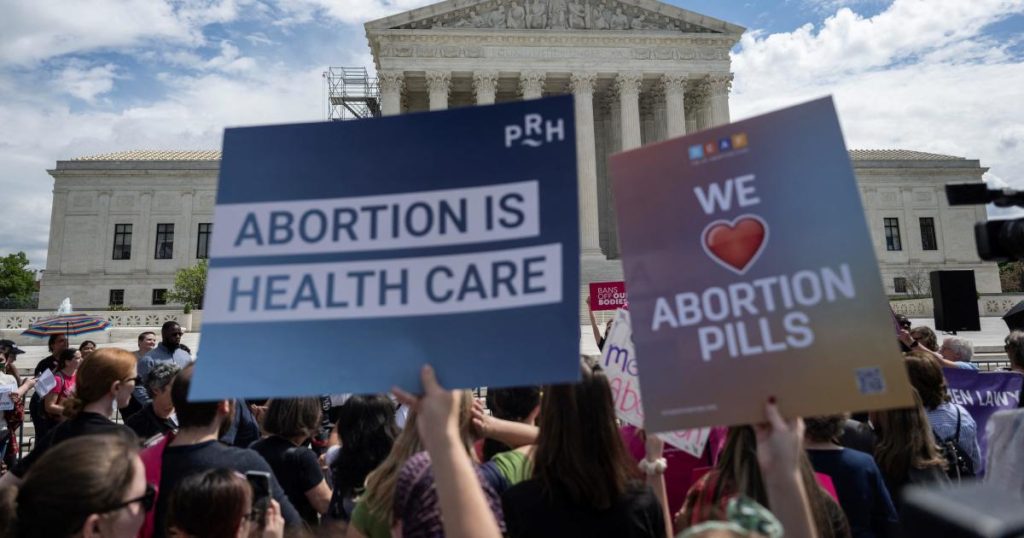The battle over access to medication abortion has reached the Supreme Court, with justices set to hear a case that challenges recent FDA changes that made obtaining the pill, mifepristone, easier. The dispute involves medical associations that oppose abortion rights arguing that the FDA acted unlawfully by relaxing rules surrounding mifepristone’s use. The outcome of this case could impact states with varying abortion policies and could potentially roll back recent FDA moves that made reproductive care more accessible and safe.
Medication abortions made up more than half of all abortions in the U.S. in 2023, demonstrating the significance of mifepristone in abortion procedures. The FDA’s changes in 2016 and 2021, including allowing mifepristone to be taken later in pregnancy and reducing in-person visits, have contributed to the rise in medication abortions. This case before the Supreme Court underscores the importance of medication abortion, especially in regions where access to abortion is limited.
The case challenging the FDA’s actions began in 2022 when a group of medical associations that oppose abortion rights filed a lawsuit claiming the FDA did not have the authority to approve mifepristone and failed to adequately consider its safety. While the 5th Circuit upheld the FDA’s approval, it also found fault with recent changes to mifepristone’s rules. The Supreme Court will now decide on the legality of the FDA’s actions, with a ruling expected by the end of June.
Before ruling on the legal issues, the Supreme Court will first consider whether the medical associations have legal standing to challenge the FDA’s actions. The Justice Department argues that the doctors involved in the lawsuit do not prescribe the drug and have not shown they would be injured by the FDA’s rule changes. However, the medical associations argue that the changes put patients at risk by removing safeguards, such as screening for ectopic pregnancies, and increasing the risk of adverse events.
If the Supreme Court upholds the 5th Circuit’s ruling, concerns have been raised about the potential chaos and harm it could cause to individuals seeking medication abortions. International telehealth providers and online vendors may offer alternative routes of access to mifepristone in states where abortion access is limited. Additionally, concerns have been raised about the reliability of studies cited in lower court rulings, with accusations of judge-shopping and the use of ideologically tainted junk science in the case.
Regardless of the Supreme Court’s decision, providers like Aid Access are committed to continuing their work of providing medication abortion to those in need. The controversy surrounding this case highlights the ongoing battle over abortion access and the potential impacts of legal decisions on reproductive care in the U.S. The outcome of this case could shape the future of abortion policies in different states and impact access to medication abortion nationwide.















